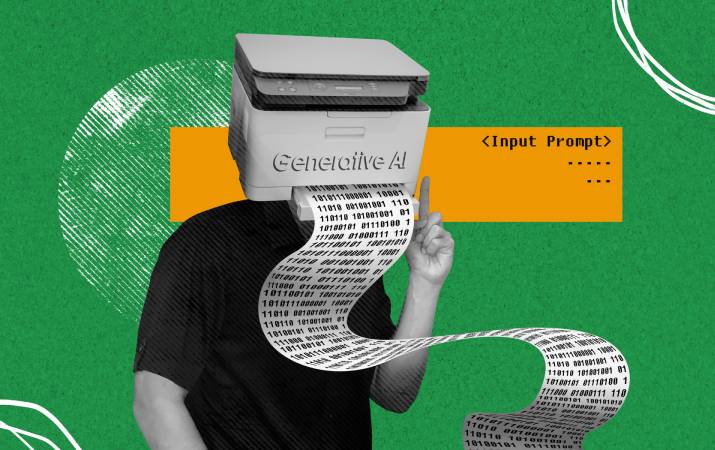What self-education expenses can you claim at tax time?
An accountant shares the ins and outs of getting your tax done—including what you can and can’t claim if you're studying for work.

Found yourself nose-deep in study again to upskill for your job? With tax time fast approaching you’re likely considering what’s a claimable expense and what’s not.
Trouble is, understanding self-education expenses can feel like it requires a degree of its own. And, well, it kind of does. That’s why we asked an expert what counts as a self-education expense and what doesn’t at tax time.
Who can claim self-education expenses?
Accountant and Principal at RBizz Accountants Raj Kumar says there’s a golden rule for anyone unsure if they can claim self-education expenses: the course or study must be directly linked to your current job.
“It’s about enhancing what you already do,” he says, pointing out that if you don’t have a job but you’re undertaking studies to make yourself eligible to find a job, your study is not deductible.
Raj provides two examples to help make this clearer:
Claimable example 1: You’re a nurse taking a course, such as the Graduate Diploma of Nursing, to upgrade your skills. This directly improves your skills in your current nursing role, making it claimable.
Claimable example 2: You’re a marketing manager studying an advanced marketing course, such as a Graduate Certificate of Digital Marketing, to enhance your digital marketing skills. You can claim these expenses.
Not claimable: You’re a nurse taking a law degree to change careers and become a lawyer. This is a career change, not enhancing your current nursing role, making it non-deductible.
What are work-related self-education expenses?
Work related self-education expenses are the costs you incur while studying to improve your skills in your current job, says Raj. These costs can be claimed as deductions at tax time, but, as previously mentioned, only if they are directly related to your current employment.
“If the course or study enhances your current job’s skills, it’s likely deductible,” clarifies Raj. “This could be a chef taking a culinary course, a teacher learning new teaching methods, or an accountant studying updated tax laws,” he says.
“For example, if you’re a software engineer taking a course on advanced programming languages, you can claim the course fees, textbooks, and a percentage of your home internet costs if used for study.”
What self-education expenses can I claim?
Study comes with a few necessary costs, like course fees, textbooks, and setting up a study space at home if you don’t already have somewhere suitable to bury your nose in a textbook.
But the good news is there may be some self-education expenses you can claim on tax, says Raj.
According to Raj, what can and can’t be claimed includes:
What can be claimed at tax time
- Course fees: Your course fees are a deductible expense if they’re not reimbursed by your employer or covered by HECS-HELP or FEE-HELP.
- Textbooks: If your course requires specific books, these are deductible.
- Internet and data usage (excluding connection fees): You can claim the percentage of your monthly internet bill that you use on study.
- Travel: Travel between your place of work and place of study and back is claimable. And if you’re required to travel for a conference or similar work-related trip, you can claim travel, accommodation, and conference fees.
What can’t be claimed at tax time
- New laptop or iPad: While a new laptop is essential for study, if it’s used for personal activities as well as study—like watching Netflix—you can only claim the portion used for study. Purchasing an iPad that is also used for personal entertainment wouldn’t be deductible.
- Daily commute: If you rely on public transport to get places, you’ve likely purchased a public transport card, like an Opal or Myki card. But taking the train to your regular place of work isn’t a study expense.
- Coffee: While caffeine boosts during intense study sessions may feel like a necessity, sadly, they aren’t deductible.
Can I claim HECS [or FEE-HELP] as a tax deduction?
Course fees are a non-negotiable when you decide to study, so you may be wondering if you can claim HECS or FEE-HELP as a tax deduction. According to Raj, the answer isn’t black and white.
HECS-HELP repayments are not deductible, says Raj. But, if used for a work-related course, FEE-HELP course fees are deductible.
Tips for tax time
When it comes to tax time, the more organised and informed you are, the better. After all, it’s important you claim everything you’re entitled to, but at the same time you don’t want to be caught off guard in the event the Australian Taxation Office (ATO) queries anything.
Here are Raj’s tips on tax time essentials to ensure your end of financial year is as efficient as it can be:
Keep meticulous records
Keep receipts for everything. It’s your proof should any query be raised. A simple spreadsheet or app can help keep track of all your expenses. Plan ahead and start keeping records early to avoid a last-minute scramble at tax time.
Maximise your deductions
Understanding what you can and can’t claim can go a long way towards maximising your deductions. But don’t over claim and always stick to the rules.
Apportion carefully
If your internet bill is $80 per month and you estimate 50% for study, you can claim $40 of it.
Remember the ATO is your friend
Their website is a treasure trove of information on self-education deductions.
Get expert help
If in doubt, seek help from a tax professional. They can save you time and money, and show you how to get the most out of your tax return—plus they know all the ins and outs of what self-education expenses you’re eligible for.
Not sure what to study?
Take our 2-minute quiz to find the right course for you.



